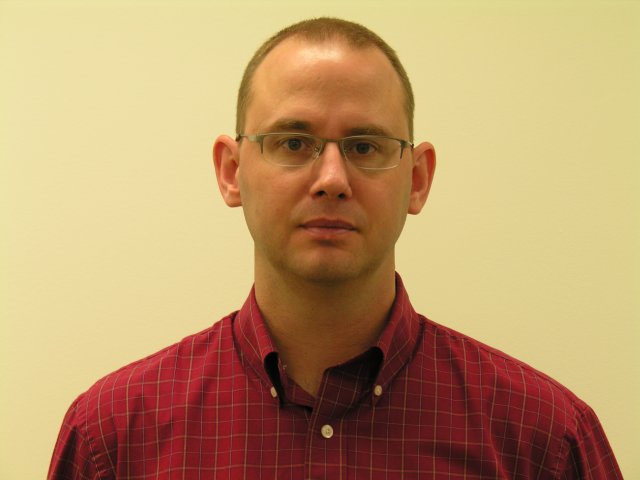Meet EPA Research Environmental Engineer David Wahman, PhD, PE

How does your science matter?
My research advances our understanding of disinfectant chemistry which has several practical implications for drinking water practice. The amount of chlorine or other disinfectant left in drinking water after treatment directly correlates to the quality of the finished drinking water. My work has resulted in tools that help estimate these disinfectant amounts so that utility operators can make informed treatment decisions when treating drinking water. My work informs safer drinking water practices by helping utilities maintain minimum disinfectant residuals and operate their systems to minimize disinfectant by-product formation, meeting regulations and protecting public health. The more utilities know about their individual system’s water chemistry, the better they can treat it.
What do you like most about your research?
Most of my work has dealt with disinfectant chemistry (free chlorine and chloramines) and nitrification (a microbial process that can affect water quality) in drinking water, but I have recently been working on Per- and polyfluoroalkyl substances (PFAS) research related to PFAS removal by anion exchange resin and granular activated carbon. Drinking water can be a source of exposure in communities where these chemicals have contaminated water supplies. Understanding how to remove PFAS from drinking water systems is important because there is evidence that exposure to PFAS can lead to adverse health outcomes in humans. The most satisfying research is where something fundamental is discovered and can then be applied to solve or inform a practical problem.
When did you first know you wanted to be an engineer?
I’ve just always liked math and science, but I don’t think I’ve ever known this is what I’m supposed to be doing. At times, I feel like I am still trying to figure out what I want to be when I grow up.
Tell us about your background.
I grew up in Southeastern Indiana in Oldenburg. I recommend attending Oldenburg’s Freudenfest or just making the trip there for some fried chicken. I went to Rose-Hulman Institute of Technology for undergrad. I started in Mechanical Engineering, but after some discussions with fellow baseball players on our spring baseball trip, I switched to Civil Engineering my sophomore year. During undergrad, I interned for two summers at a small consulting engineering firm and ended up working for them for five years after graduation and obtaining my Professional Engineering license. This helped me gain practical experience on water and wastewater projects and made me realize I did not know enough; therefore, I decided to attend graduate school. I attended graduate school at The University of Texas at Austin for my MSE (Environmental & Water Resources Engineering) and PhD (Civil Engineering). My dissertation research was on biologically degrading trihalomethanes with nitrifying bacteria. I took a post-doc position at EPA working on distribution nitrification that led to a permanent position. I’ve been with EPA for over 13 years.
If you weren’t an engineer, what would you be doing?
I really don’t know, but it would have to be something where I could solve problems in some form to keep me interested. I tend to lose interest quickly when I understand something. Beyond work, I don’t mind things being quiet and boring.
Any advice for students considering a career in science?
Do it. There are so many things we still don’t understand, and the more I learn, the more I see what we don’t understand.
If you could have one superpower, what would it be and why?
Flying. I dislike being stuck in a car and relying on something to get me around.
Editor's Note: The opinions expressed herein are those of the researcher alone. EPA does not endorse the opinions or positions expressed.
